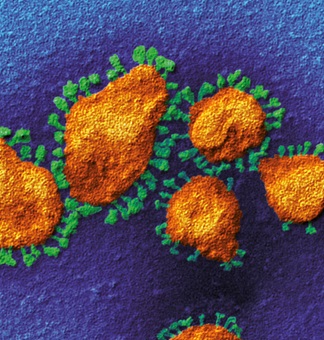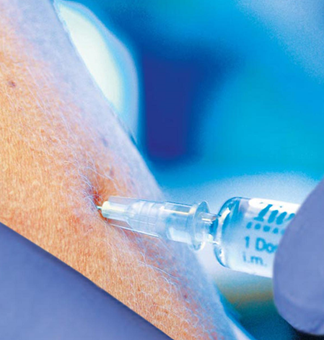The coronavirus SARS-CoV-2 is believed to have been circulating in humans since late 2019 and can cause COVID-19 disease. As the trigger of the current COVID-19 pandemic, SARS-CoV-2 has spread rapidly worldwide since early 2020. To protect against infection, non-pharmaceutical measures such as distance, hygiene, mask in daily life, Corona warning app and ventilation rules have been introduced. Since the virus spreads mainly through droplets and aerosols, it is also recommended to ensure sufficient distance and regular ventilation, especially indoors. Infections via contaminated surfaces or hands is possible, especially in the immediate vicinity of infected persons, so good hand hygiene is always advisable.
COVID-19 varies in severity and can affect almost all organs. Typically, pneumonia occurs, but neurological symptoms, gastrointestinal symptoms, cardiovascular symptoms, kidney diseases and other manifestations are also described. Severe cases of the disease, which can become fatal, occur more frequently in older people. The first vaccines that protect against severe cases of the disease have been available since the end of 2020. Since the virus constantly produces new variants through mutations, it can be assumed that the vaccines - similar to the flu vaccines - will have to be adapted from time to time as well.
















